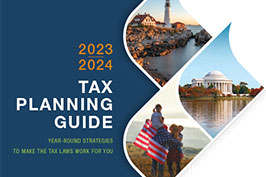How to handle taxes and forgiveness for small business PPP loans
Over the course of the past several months or so, Congress and the IRS couldn’t come to a consensus about the tax rules pertaining to business expenses paid for using Paycheck Protection Program (PPP) loan money. In the past, if you had a business loan that was forgiven, it automatically counted as taxable income.
However, on December 21, Congress passed the latest COVID-19 relief bill which states that “No deduction shall be denied or reduced, no tax attribute shall be reduced, and no basis increase shall be denied, by reason of the exclusion from gross incomes provided by the loan forgiveness provisions that say forgiven PPP loans will not count as income.” Simply put, you don’t have to pay taxes on the PPP loan money that you receive.
Passage of this latest small business relief package reversed the earlier position taken by the IRS which stated that forgiven PPP program loans would count as taxable income. This reversal of position on the part of the IRS was seen as overwhelmingly positive for small business owners.
Testimonial
There is no deadline to apply for PPP loan forgiveness, but it’s recommended that forgiveness applications be filled out and submitted before it’s necessary for you to make your first PPP loan payment. It’s best to check with your lender to see if they’re currently accepting forgiveness applications.
Yes, it can be confusing
There were some big PPP program changes as a result of the second stimulus bill when it was rolled out on December 27, 2020. These included:
- A more simplified PPP forgiveness application form for loan amounts of $150,000 or less
- New forgivable expenses including property damage and supplier costs, operational expenses, and worker protection expenditures
- A second draw PPP loan for businesses needing additional funding
For loans less than $150,000, there is now a streamlined forgiveness process requiring fewer calculations and less documentation from borrowers. Using Form 3508S you’re only asked the following:
- Provide the amount you spent on payroll
- Provide the forgiveness amount that you requested
- Certify the conditions via initials and signatures
Forms 3508 and 3508EZ require multiple calculations as well as various supporting documents.
CTA – Your tax planning guide

For federal income tax purposes, PPP loan forgiveness isn’t subject to income tax, and expenses paid using PPP loan money are deductible. However, not all of the states which impose an income tax are following the federal law.
As a result, it can become confusing when it comes to how to handle taxes for 2020 as well as 2021. Working with a CPA can provide clarity and make the process less time-consuming for you.
Before you apply for PPP forgiveness
There are many document requirements related to the forgiveness program for small businesses. If you’re applying for PPP loan forgiveness, contact GYL CPAs and Advisors, a CPA accounting firm in San Diego. Our accountants can provide you with assistance throughout the forgiveness process and will provide our clients with COVID-19 updates as they apply for income tax filing and payment relief.
